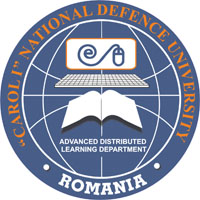THE BENEFITS OF e-LEARNING THROUGH WEBQUESTS. A CASE STUDY.
THE BENEFITS OF e-LEARNING THROUGH WEBQUESTS. A CASE STUDY.
Author(s): Camelia Alibec, Corina SandiucSubject(s): Education
Published by: Carol I National Defence University Publishing House
Keywords: e-Learning; WebQuests; blended learning; Business English
Summary/Abstract: The new educational environment triggers new approaches to education. In this context, e-Learning becomes a prerequisite for the education of the future, a means to ensure success in building and developing the learners’ linguistic competencies. This study argues that, together with face-to-face teaching methods, e-Learning is an indispensable component to modern foreign language teaching and business communication teaching. The aim of this article is to analyze the impact that e-Learning has on the students’ English language acquisition by focusing mainly on applying WebQuests in the process of teaching. Our case study targets the second year students who attend part time courses within the "Mircea cel Bătrân" Naval Academy, the Faculty of Port Management, and concentrates on the students’ learning of Business English. The starting point of our research is the Advanced Distributed Learning platform (ADL) in the Naval Academy, which constitutes the medium for implementing our teaching resources. We have used the WebQuest as a main teaching aid because it combines the theoretical aspects of language learning with the effective use of the Internet to promote individual self-study practices, emphasizing the importance of combining authentic tasks with Internet resources to develop critical thinking skills. The authentic tasks comprised in the WebQuests motivate students and increase their contribution and involvement in the learning process. These tasks are designed to help students practice what they have learned during the English classes, and encourage them to become involved in selfstudy projects, such as the compilation of a short Business English Dictionary. The students will be using their English skills along with the technological input to complete the WebQuest. They are given the responsibility of choosing the content of their dictionaries, which will eventually be presented to their colleagues and to the teacher. The best work will be published on the ADL platform. In this way, the newly acquired theoretical information is filtered through the students’ critical thinking, undergoing an important transformation within learners themselves.
Journal: Conference proceedings of »eLearning and Software for Education« (eLSE)
- Issue Year: 11/2015
- Issue No: 01
- Page Range: 142-145
- Page Count: 4

